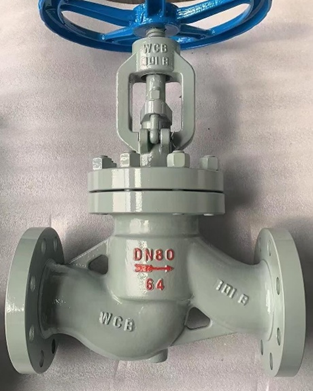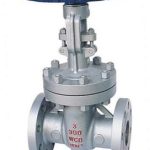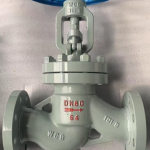In process flows of an industrial nature, careful choice of a valve is extremely important to achieve optimal operational efficiency, safety, and equipment life. Of the most commonly used valves are the gate valve and globe valve. At first glance, they appear almost identical, but they have very differing uses and are made differently for the stated purpose.
At SVR, we understand how critical it is to select the right valve for your system. Here in this in-depth guide, we examine the basic differences between globe valves and gate valves by design, operation, performance, advantages, and typical applications.
What Is a Globe Valve?
A globe valve is a linear motion valve employed primarily for the regulation of flow. It consists of a spherical body (hence the name “globe”) and a disc or plug, which is adjustable to open, close, or throttle fluid flow by moving up and down in a straight line.
Working Principle:
When the valve stem is turned, the disc or plug moves away from or towards the valve seat. This movement allows for fine regulation of flow, hence making globe valves appropriate for throttling service.
Common Applications:
- Flow control in pipelines
- Cooling water systems
- Fuel oil systems
- Steam control
- High-pressure applications
What Is a Gate Valve?
Gate valve is another linear motion valve but for totally open or fully closed operation. It consists of a flat or wedge-shaped gate that moves in the vertical direction to start or close flow. It is not used for regulation of flow.
Working Principle:
When the gate is opened, the fluid flows in a linear path with very minimal restriction. Closing the gate closes off the flow. Gate valves offer low pressure drop when open and close tight sealing.
Typical Applications:
- On/off operation
- Water supply lines
- Oil and gas lines
- Fire-protection systems
- Chemical and power processes
Design Variations
Globe Valve Design:
- S-pattern or Z-shape flow passage
- Has a movable disc and stationary seat
- Requires more vertical space because of stem movement
- Higher pressure drops due to changes in fluid direction
Gate Valve Design:
- Straight-through flow path
- Has a gate or wedge that oscillates in an up and down motion
- Short along the pipeline axis but tall when open
- Minimum pressure drops when fully open
Comparison of Performance
Flow Control:
- Globe Valve: Good at throttling and controlling the flow. It allows operators to control the flow rate very precisely.
- Gate Valve: Unsuitable for throttling. Turbulence and gate wear due to partial opening shorten lifespan.
Pressure Drop:
- Globe Valve: Higher pressure drops due to numerous direction changes.
- Gate Valve: Extremely low pressure drops in fully open position due to linear flow path.
Sealing Ability:
- Globe Valve: Better sealing in high-pressure operations due to tight contact between disc and seat.
- Gate Valve: Superior sealing but may permit minimal leakage when not fully closed or in the presence of dirt blockages to the gate.
Operating Time:
- Globe Valve: Slower operation; greater handwheel revolutions to open or close.
- Gate Valve: Faster operation to completely open or shut the valve.
Maintenance and Longevity
Globe Valve:
- Is easier to service because the seat and disc are exposed.
- Suitable for frequent use and modulation.
- Can better handle high-pressure drops.
Gate Valve:
- Less maintenance in on-off service.
- Not ideal for repeated use—can wear out faster if used to regulate flow.
- Typically cleaner for clean liquids; sediment can affect gate operation.
Installation Considerations
Globe Valves:
- May be installed horizontally or vertically.
- Occupies more space vertically due to rising stem.
- Best suited for systems where space and flow regulation are equal.
Gate Valves:
- Typically installed in horizontal pipelines.
- Occupies more space wide open (due to rising stem).
- Most ideal where full flow or full shutoff is required without the regulation of flow.
Summary of Key Differences
| Feature | Globe Valve | Gate Valve |
| Flow Control | Excellent (precise throttling) | Poor (on/off only) |
| Flow Path | Non-linear (S-shaped) | Straight-through |
| Pressure Drop | Higher | Lower |
| Sealing | Tighter in throttling applications | Good when fully closed |
| Operation Speed | Slower due to multiple turns | Faster in full-open/close situations |
| Space Requirement | Taller when open | Compact in pipeline, tall when open |
| Maintenance | Easier; accessible internals | Less frequent but trickier when needed |
| Applications | Throttling, pressure regulation | On/off applications, isolation |
When to Use Globe Valves
Choose a globe valve if:
- You need to control or throttle fluid flow.
- Pressure drop is acceptable.
- Accuracy of control is important.
- The system is frequently adjusted.
When to Use Gate Valves
Choose a gate valve if:
- You need full on/off operation.
- Minimum pressure drop is desirable.
- Flow needs to be unobstructed when open.
- The system is normally either fully on or fully off.
Knowing the basic distinctions between globe valves and gate valves when designing or replacing an industrial flow system is important. Though both are vital, their design, operation, and advantages are quite different.
At SVR, we manufacture high-performance globe valves and precision-made gate valves to meet the demands of various industries like oil & gas, water treatment, power, and chemical processing. Be it ideal flow control or a sound shut-off application, our team of experts is available to help you choose the best valve for your specific application.
Need help in choosing the right valve? Contact SVR today for expert guidance and durable, reliable valve solutions engineered to endure.












